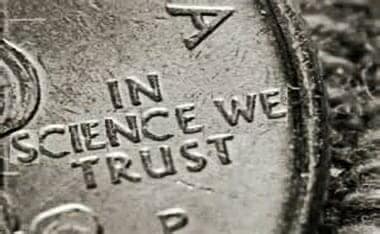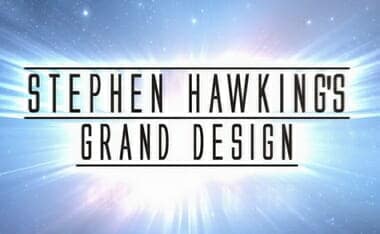Opinions are bountiful, testing one’s opinions in today’s age? Not so much.
I will explain the issues I have with John’s latest article, and as usual, you can click it to enlarge the above. In this latest opinion slurry, John asks questions that I doubt he even has one single book by a leading philosopher/theologian/scientist from either the Intelligent Design camp or creation positions to search for how Christianity answers these questions. For instance, my favorite treatise to introduce people to ideas expressed above in a broad sense, “Unshakable Foundations: Contemporary Answers to Crucial Questions about the Christian Faith.” Or a more in-depth treatise of the same, “I Don’t Have Enough Faith to Be an Atheist.” Or one more specific to his questions, “The Case For A Creator: A Journalist Investigates Scientific Evidence That Points Toward God.” All are readable, and all answer his questions in a way that a mature seeker to these answers would do if seeking to inform one’s own opinion.
One of the queries proffered above is this one: “Of course, that interpretation invites the question, who or what created God.” I wonder if John has actually spent the time finding an answer to this position that has surely passed his lip many times in conversation. I do have a POWER POINT that deals with this in a very layman-like manner. Also, a more in-depth treatise of it as well HERE. But in a short conversation I had with another gentleman, I responded briefly this way — showing that this has been squarely dealt with many hundreds of years ago:
Tim, you asked:
“What created God? Who created the thing that created the thing that created the thing that created God? It’s an infinite regression.”
Again, “What created God.”
You are basically saying that:
“if everything needs a cause, then so does God, in which case he would not be God. And if God does not need a cause, then neither does the world. But if the world needs no cause then there is no God. Hence, whether everything needs a cause or does not need a cause, there is no God.”
Did I sum up the “gist” of the matter? (Who made God, in other words.)
The criticism, “if everything needs a cause, then there must be an infinite regress” is built on a misconception of the principle of causality. Or better, it is a confusion of the principle of existential causality and the principle of sufficient reason. The latter affirms that everything needs a cause.
That it would seem, as atheists observe, leads to a contradiction of God being his own cause.
Aquinas dealt with this long ago. He held that only finite, changing, dependent beings need a cause. This does not lead to a contradictory self-caused being but to a non-contradictory un-caused Being. For if only finite beings need a cause then one arrives at a nonfinite (i.e. infinite) being that does not need a cause. Hence, from Aquinas’ principle of causality the series would legitimately stop at the first, un-caused Cause of all finite beings.
If one is confused in regards to the above: here is a response geared towards 5th grader; and one geared towards adults. John’s article[s] surely exemplify philosopher Mortimer Adler’s point about formulating good questions based on coherent starting point:
Mortimer J. Adler rightly points out that while many Christians are quick in responding to the conclusions in an argument often times the Christian is unaware that the point of departure is not in the conclusion, but in the starting premise, the foundational assumptions.
Norman L. Geisler & Peter Bocchino, Unshakeable Foundations: Contemporary Answers to Crucial Questions About the Christian Faith (Minneapolis: Bethany House, 2001), 20-21.
This “point of departure” is answered two separate times by Christian philosopher Dr. William Lane Craig ~ in less than 2-minutes in each case. I mention the time factor because it seems Mr. Huizum hasn’t even taken 2-minutes to get an answer to his “point of departure”:
WILLIAM LANE CRAIG: Who Made God
John states that searching for answers to his questions in the article is “vital” in “‘knowing’ the truth.” That is fine, and he is right, it is an important question that from the Greeks to us has been a grand Western tradition. But even 1,000’s of years ago the Greeks thought it important enough to debate “how” even to ask the question properly. All that aside however, my last point that needs to be made in one that undermines John’s presuppositions. In John’s closing statement, he says this:
If science is right, there is no need for the existence of a supernatural being, which would in turn terminate all religions on earth and consequently a lot of insane wars.
In a previous installment I respond to John also writing that “Atheism has been aided by scientific discoveries and rigorous questioning.” In the much longer response I quote two agnostics as saying this;
✪ “The essential element in the astronomical and biblical accounts of Genesis is the same; the chain of events leading to man commenced suddenly and sharply, at a definite moment in time, in a flash of light and energy…. The Hubble Law is one of the great discoveries in science; it is one of the main supports of the scientific story of Genesis.”
~ Robert Jastrow: American astronomer and physicist. Founding director of NASA’s Goddard Institute for Space Studies, he is the director of the Mount Wilson Institute and Hale Solar Laboratory. He is also the author of Red Giants and White Dwarfs (1967) and God and the Astronomers (2nd ed., 2000).
✪ “Certainly there was something that set it all off. Certainly, if you are religious, I can’t think of a better theory of the origin of the universe to match with Genesis.”
~ Robert Wilson: is an American astronomer, 1978 Nobel laureate in physics, who with Arno Allan Penzias discovered in 1964 the cosmic microwave background radiation (CMB)…. While working on a new type of antenna at Bell Labs in Holmdel Township, New Jersey, they found a source of noise in the atmosphere that they could not explain. After removing all potential sources of noise, including pigeon droppings on the antenna, the noise was finally identified as CMB, which served as important corroboration of the Big Bang theory.
So John seems to be making the same misguided statements, maybe based on his misunderstanding of the weight of the logical conclusions found in a “non-God” universe, where truth cannot be known. Or not spending 2-minutes to see where his starting premise may be errant, and so his conclusions even worse. In other words, questions seeking a truthful response or statement of fact are impossible considering Johns epistemology (“the branch of philosophy concerned with questions about knowledge and belief and related issues such as justification and truth”).
To which I end with a call for John to internalize if he can even ask what he has in this column and others and expect to find an answer to his “probing” [sophomoric] questions:
Even Darwin had some misgivings about the reliability of human beliefs. He wrote, “With me the horrid doubt always arises whether the convictions of man’s mind, which has been developed from the mind of lower animals, are of any value or at all trustworthy. Would any one trust in the convictions of a monkey’s mind, if there are any convictions in such a mind?”
Given unguided evolution, “Darwin’s Doubt” is a reasonable one. Even given unguided or blind evolution, it’s difficult to say how probable it is that creatures—even creatures like us—would ever develop true beliefs. In other words, given the blindness of evolution, and that its ultimate “goal” is merely the survival of the organism (or simply the propagation of its genetic code), a good case can be made that atheists find themselves in a situation very similar to Hume’s.
The Nobel Laureate and physicist Eugene Wigner echoed this sentiment: “Certainly it is hard to believe that our reasoning power was brought, by Darwin’s process of natural selection, to the perfection which it seems to possess.” That is, atheists have a reason to doubt whether evolution would result in cognitive faculties that produce mostly true beliefs. And if so, then they have reason to withhold judgment on the reliability of their cognitive faculties. Like before, as in the case of Humean agnostics, this ignorance would, if atheists are consistent, spread to all of their other beliefs, including atheism and evolution. That is, because there’s no telling whether unguided evolution would fashion our cognitive faculties to produce mostly true beliefs, atheists who believe the standard evolutionary story must reserve judgment about whether any of their beliefs produced by these faculties are true. This includes the belief in the evolutionary story. Believing in unguided evolution comes built in with its very own reason not to believe it.
This will be an unwelcome surprise for atheists. To make things worse, this news comes after the heady intellectual satisfaction that Dawkins claims evolution provided for thoughtful unbelievers. The very story that promised to save atheists from Hume’s agnostic predicament has the same depressing ending.
It’s obviously difficult for us to imagine what the world would be like in such a case where we have the beliefs that we do and yet very few of them are true. This is, in part, because we strongly believe that our beliefs are true (presumably not all of them are, since to err is human—if we knew which of our beliefs were false, they would no longer be our beliefs).
Suppose you’re not convinced that we could survive without reliable belief-forming capabilities, without mostly true beliefs. Then, according to Plantinga, you have all the fixins for a nice argument in favor of God’s existence For perhaps you also think that—given evolution plus atheism—the probability is pretty low that we’d have faculties that produced mostly true beliefs. In other words, your view isn’t “who knows?” On the contrary, you think it’s unlikely that blind evolution has the skill set for manufacturing reliable cognitive mechanisms. And perhaps, like most of us, you think that we actually have reliable cognitive faculties and so actually have mostly true beliefs. If so, then you would be reasonable to conclude that atheism is pretty unlikely. Your argument, then, would go something like this: if atheism is true, then it’s unlikely that most of our beliefs are true; but most of our beliefs are true, therefore atheism is probably false.
Notice something else. The atheist naturally thinks that our belief in God is false. That’s just what atheists do. Nevertheless, most human beings have believed in a god of some sort, or at least in a supernatural realm. But suppose, for argument’s sake, that this widespread belief really is false, and that it merely provides survival benefits for humans, a coping mechanism of sorts. If so, then we would have additional evidence—on the atheist’s own terms—that evolution is more interested in useful beliefs than in true ones. Or, alternatively, if evolution really is concerned with true beliefs, then maybe the widespread belief in God would be a kind of “evolutionary” evidence for his existence.
You’ve got to wonder.
Mitch Stokes, A Shot of Faith (to the Head): Be a Confident Believer in an Age of Cranky Atheists (Nashville, TN: Thomas Nelson, 2012), 44-45.




